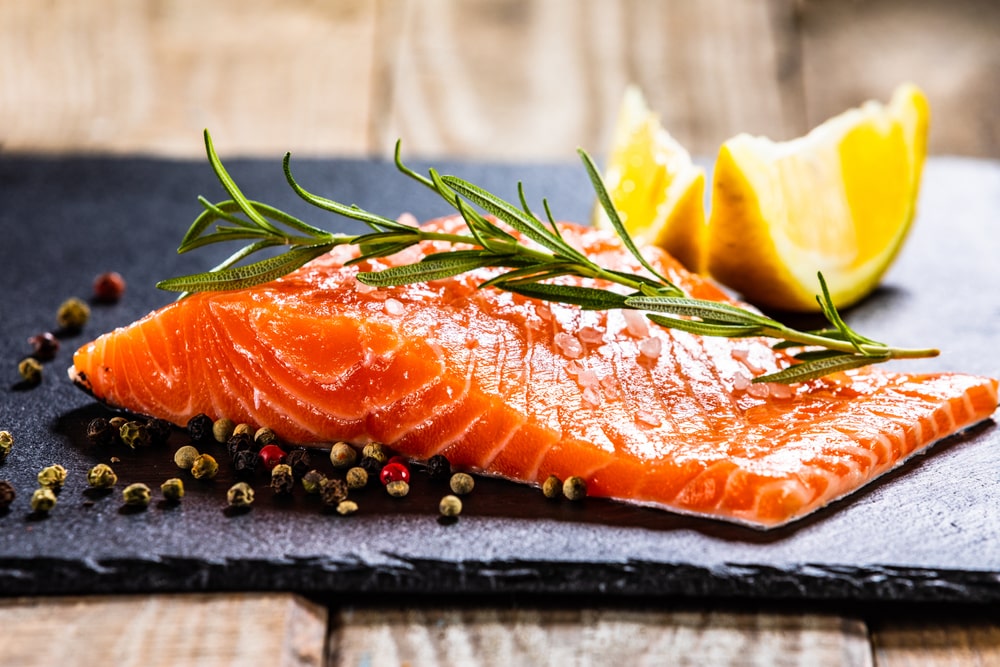When it comes to keeping heart-healthy, fish may thoroughly remain one of our best friends. Why? Because consuming a diet rich in fish is associated with reducing the risk of heart attacks and stroke and critical, sudden cardiac death. Consequently, the Heart Association recommends we eat at least 1 to 2 servings of Fish For Healthy Heart.
Fish possess meagre amounts of saturated fat and are high in specific unsaturated fatty acids (tilapia & catfish remain privileges — they contain high levels of unhealthy saturated fat). Moreover, while this may sound counterintuitive, the fatty fish signify the healthiest when it proceeds to your heart as they are very high in the omega-3 — one most useful fatty acid nutrient for cardiovascular health. The fatty fish incorporate sardines, herring, mackerel, lake trout, salmon, and tuna.
Specific omega-3 fatty acids in fish signify extremely healthy for the heart. Here in this blog, you will determine why the heart-healthy benefits of consuming fish regularly outweigh several risks.
Furthermore, if you are worried about your heart health, consuming at least two fish servings in a week could decrease the risk of heart illness.
For several years, It is recommended that specific people consume fish abundant in unsaturated fats at least two times a week. Specific unsaturated fats in fish are known as omega-3 fatty acids. Moreover, the Omega-3 fatty acids, which are present in the fish, may help heart health and reduce the uncertainty of dying from heart disease.
Most people are very concerned regarding mercury or other contaminants present in seafood. Though, specific benefits of eating fish being part of one healthy diet typically outweigh the potential risks of disclosure through pollutants. Get how to counteract these concerns by combining a healthy quantity of fish into your diet.
What Specifically Are The Omega-3 Fatty Acids?
The Omega-3 fatty acids signify a kind of unsaturated fatty acid that can reduce the inflammation entirely from the body. Inflammation within the body can harm your blood vessels moreover begin to heart disease & strokes.
The Omega-3 Fatty Acids can benefit heart health through:
- Reducing triglycerides
- Lowering the blood pressure imperceptibly
- Decreasing blood clotting
- Reducing the risk of strokes & heart failure risk
- Decreasing the irregular heartbeats
Consuming at least two servings in a week of the fish, especially fish extremely rich in omega-3 fatty acids, seems to reduce the specific risk of heart disease, wildly unexpected cardiac death.
Stay Strong-Hearted Inspiration Center
Here is what you require to understand, from nutrition to exercise, to help you reduce the heart disease risk; moreover, Stay Strong-Hearted!
They are called necessary because a specific body cannot execute them; therefore, we require to get them in our diet or virtually a supplement. Furthermore, if we do not also are omega-3 lacking, it can affect everything from heart disease and depression to arthritis and even cancer.
Mainly there are 11 kinds of omega-3 polyunsaturated fats; moreover, the three most essential ones—as they correlate to heart & brain health—are EPA, ALA, and DHA. The ALA (alpha-linolenic acid) remains found mostly within plants, while the EPA (eicosapentaenoic acid) & DHA (docosahexaenoic acid) signify from the animal produce.
What Do The Omega-3 Fatty Acids Do for The Heart’s Health?
The study has revealed that the omega-3 fatty acids to possess several advantages for the heart that drive to an overall decreased risk of specific heart disease & stroke through:
- Decreasing triglycerides — The fat residues in the arteries increase the uncertainty of heart attack, other heart diseases, and strokes.
- Reducing the rate of the plaque increase in the arteries — cholesterol, fat, and calcium sediments can accumulate, restrict the flow of the oxygen-rich blood throughout the body, and cause the blockages beginning to heart disease and heart attacks.
- Serving as the anti-inflammatory — the inflammation throughout a particular body can damage the blood vessels.
- Decreasing blood pressure — Research has shown that specific people who signify granted higher doses of the omega-3s have dropped systolic & diastolic blood pressure. While high, they can both begin to have heart disease & heart attacks. Systolic remains the arteries’ pressure when the heart muscle contracts; moreover, diastolic signifies the pressure in the streets within heartbeats.
- Reducing the risk of arrhythmia — the irregular heartbeat can raise the risk of heart issues & stroke.
- Bettering endothelial cell function — when more clinical trials remain needed, omega-3s possess shown to improve specific ‘lifeline’ cells that line each of our blood vessels completely in the complete vascular system (through the heart to exact tiniest capillary), plus control the particular exchange of the materials, including the white blood cells, from individual bloodstream to encompassing tissues. They better regulate tissue growth, moreover, repair & help the vascular system perform more beneficial to heal cardiovascular disease.
Getting Your Omega-3s
Researches show that including fish in the diet remains the most beneficial way to boost omega-3 fatty acid consumption. Giggs Meat helps you to get omega-3s by providing online fresh raw fish supplements when it proceeds to heart health.
Know how much fish you should eat
Studies recommend that fish is an essential component of one healthy diet for a lot of people. The women who are pregnant, preparing to be pregnant, or comprise breastfeeding, including young children, should desist from eating fish with significant potential for high levels of the specific mercury contamination.
- Adults should consume at least 8 ounces of either two servings of the omega-3-rich fish in a week. One serving size signifies 4 ounces or about a specific size of one deck of cards.
- Children should also eat fish from the selections lower in the mercury once either twice a week. One serving size for children younger than age 2 remains 1 ounce and increases by age.
- The women who signify the pregnant, intend to be pregnant, either are breastfeeding should consume up to 12 ounces of the seafood every week from a diversity of choices that remain lower in the mercury contamination.
For perceiving the most health advantages from consuming fish, pay consideration to how it is prepared. For instance, grilling, broiling, either baking fish signifies a healthier choice than deep-frying.

























